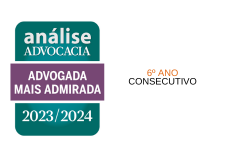On July 18th, 2022, Decree No. 11,129/2022 came into force, replacing the Decree No. 8,420/2015 which was regulating the Brazilian Anticorruption Law (Law No. 12,846/2013), which disposes about the administrative and civil liability of legal entities for the practice of corruption acts against the public administration, national or foreign.
Within the several amendments included in the new Decree, we mention below some relevant points for the business community:
The first one, refers to the Integrity Programs establishing that in addition to the implementation, the program must be monitored to ensure a strong and effective governance and ensure the maintenance of a culture of integrity. Therefore, it is not enough to implement the Program, but the company must also effectively manage and monitor it.
Secondly, the Decree emphasizes the importance of prevention as a pillar of governance, which is also reflected in several provisions, such as (i) the need to allocate resources to structure the program and a pre-approved budget from top management; and, (ii) the requirement of due diligence before hiring suppliers, service contractors, intermediary agents, brokers, consultants; sales representatives, and others; as well as, prior to entering into sponsorships and donations.
Third, the Decree provides for the sharing of legal entity data, granting more powers to governmental agencies in the preliminary investigation phase, enabling them to request tax and classified information to the legal entity, even before the beginning of the Administrative Liability Process ("PAR"), in order to investigate the alleged damaging act committed.
A fourth point to highlight is the increased weight given by the legislator to the implementation and maintenance of an integrity program within companies, as a factor that may allow for a reduction of the fine imposed in case of a violation. Under the new regulations, a company that has an effective program in place prior to the violation will be eligible for a reduction of the fine of up to 5% (five percent) of its total amount.
It is important to remember that for the calculation of the fine, the consolidation of the total gross revenues of all the companies in the economic group is taken into consideration.
In conclusion, although the implementation of an Integrity Program is not yet mandatory, through this new regulation, the Brazilian legislator creates mechanisms that can benefit companies that previously have taken this initiative, and it also increase the pressure on the companies to adopt anti-corruption prevention mechanisms.
Suellen Vargas Lopes
Anne-Catherine Brunschwig








